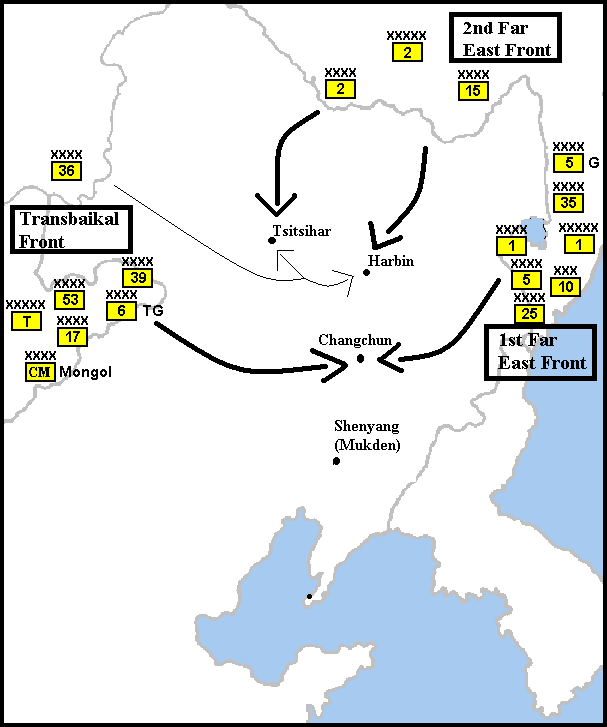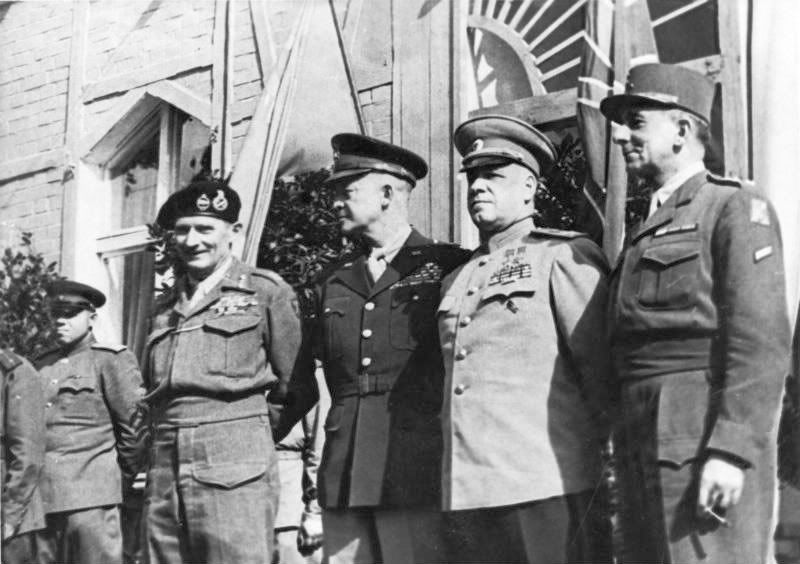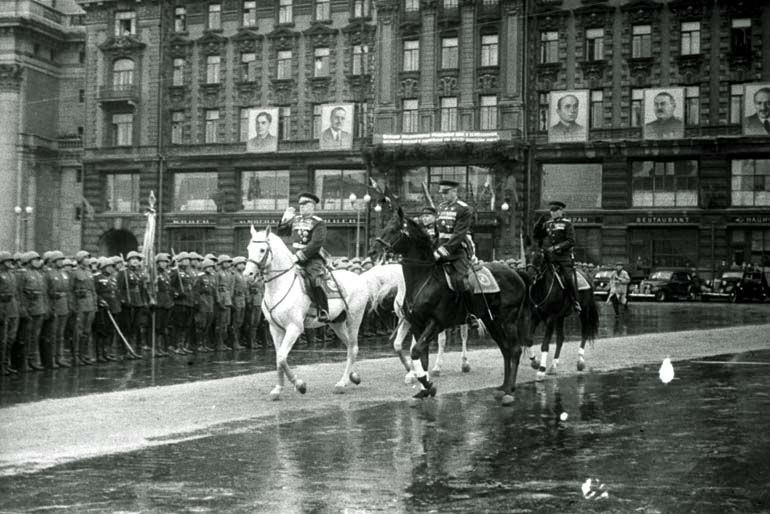No More Sorrow
- Thread starter Sectorknight21
- Start date
-
We have updated our Community Code of Conduct. Please read through the new rules for the forum that are an integral part of Paradox Interactive’s User Agreement.
You are using an out of date browser. It may not display this or other websites correctly.
You should upgrade or use an alternative browser.
You should upgrade or use an alternative browser.
Trotsky ftw! So what if he died in 1940 in the real world? It's not like Stalin's death in 1945 happened in the real world either.
Bring back Trotsky, and discard Socialism in One Country in favour of Permanent Revolution! And make a lot of ice pick jokes!

Bring back Trotsky, and discard Socialism in One Country in favour of Permanent Revolution! And make a lot of ice pick jokes!

Zhukov stared at Molotov with a thunderstruck expression, wondering whether or not to take his hand.
Power corrupts and absolute power corrupts absolutely, the latest example being Beria. Maybe in his mind Beria thought he was doing the correct thing, but he let power corrupt him. But what about all of the good things he could do for his people? the Union? and the World?
Zhukov extends his hand and meets with Molotov's hand, one of the greatest of the Soviet Union's leaders had just been born.
Out of the ashes of the bloodiest conflicts in the world arose two new superpowers. The Eagle and the Bear and within a few years were ready to go at it again. Examples include the Sino-Soviet Manchurian Crisis, the Korean War and the Berlin Blockade to name the most prominent, each one taking either the US or the Soviet Union to war, excluding the Korean War, on an epic scale.
The Sino-Soviet Manchurian Crisis
At the Tehran Conference (November 1943), Stalin agreed that the Soviet Union would enter the war against Japan once Nazi Germany was defeated. At the Yalta Conference (February 1945), Stalin agreed to Allied pleas to enter World War II's Pacific Theater within three months of the end of the war in Europe. The invasion began on August 9, 1945, precisely three months after the German surrender on May 8 (May 9, 0:43 Moscow time). Despite the May Day Counter-coup against Beria, General Secretary Zhukov agreed upon finishing Stalin's bargain to the allies by invading in August and in an operation involving a classic double pincher movement the size of western Europe signaled the Japanese surrender after arriving at the Yalu River and the Atomic bombings of Kyoto and Kokura.

Soviet Officer watches over surrendering Japanese troops turning in their weapons

Japanese troops surrender to Soviet Forces

Basic map showing Soviet invasion plan for Manchuria
After the end of the Soviet-Japanese war Mao Tse-tung, leader of Communist China demanded that his deal with Beria be ratified, all of Manchuria to Communist forces. This did not go well with Zhukov's plans however as he simply returned with,
"First you have the audacity to deal with the murderer of our great General Secretary Stalin, and then you come to me and demand territorial secessions after the loss of thousands of Soviet men having spilled blood for that very land? What foolishness! Perhaps if you can prove your worth against the capitalist swines (reference to the Republic of China) than we may consider giving you 'back' Manchuria."
Thus began the First Soviet-Sino Split, only intensifying when Mao threatened war and sending troops to the border, which was one of the main reasons of the Communist defeat in Asia as vital troops were being taken from the front.
After the German Surrender and subsequent disappearance of Marshal Zhukov only for him to reappear as the General Secretary of the Soviet Union one month later baffled the Western powers as they had received little information other than word of Stalin's death. Nonetheless Zhukov assured the Allies of his benevolence and willingness to cooperate with their plans for Germany, within the next five years however the boundaries of patience, tolerance and peace would be severely tested.

The Supreme Commanders on June 5, 1945 in Berlin: Bernard Montgomery, Dwight D. Eisenhower, Georgy Zhukov and Jean de Lattre de Tassigny.

Zhukov riding a grey Akhal-Teke horse during the Moscow Victory Parade of 1945. Next to him marshal Rokossovski on a black horse. There is now an equestrian monument to Zhukov nearby.
----------
Sorry for the short update, have exams this week so don't expect too many, also what do you think about the new style? I'll be using the new history book style until another war pops up and will most likely switch over to the US perspective in the next post.
Also KonradRichtmark, that has to be the best pic I have ever seen man!
Power corrupts and absolute power corrupts absolutely, the latest example being Beria. Maybe in his mind Beria thought he was doing the correct thing, but he let power corrupt him. But what about all of the good things he could do for his people? the Union? and the World?
Zhukov extends his hand and meets with Molotov's hand, one of the greatest of the Soviet Union's leaders had just been born.
END OF PROLOGUE
Chapter Two: The Dawn of a New World
Chapter Two: The Dawn of a New World
Out of the ashes of the bloodiest conflicts in the world arose two new superpowers. The Eagle and the Bear and within a few years were ready to go at it again. Examples include the Sino-Soviet Manchurian Crisis, the Korean War and the Berlin Blockade to name the most prominent, each one taking either the US or the Soviet Union to war, excluding the Korean War, on an epic scale.
The Sino-Soviet Manchurian Crisis
At the Tehran Conference (November 1943), Stalin agreed that the Soviet Union would enter the war against Japan once Nazi Germany was defeated. At the Yalta Conference (February 1945), Stalin agreed to Allied pleas to enter World War II's Pacific Theater within three months of the end of the war in Europe. The invasion began on August 9, 1945, precisely three months after the German surrender on May 8 (May 9, 0:43 Moscow time). Despite the May Day Counter-coup against Beria, General Secretary Zhukov agreed upon finishing Stalin's bargain to the allies by invading in August and in an operation involving a classic double pincher movement the size of western Europe signaled the Japanese surrender after arriving at the Yalu River and the Atomic bombings of Kyoto and Kokura.

Soviet Officer watches over surrendering Japanese troops turning in their weapons

Japanese troops surrender to Soviet Forces

Basic map showing Soviet invasion plan for Manchuria
After the end of the Soviet-Japanese war Mao Tse-tung, leader of Communist China demanded that his deal with Beria be ratified, all of Manchuria to Communist forces. This did not go well with Zhukov's plans however as he simply returned with,
"First you have the audacity to deal with the murderer of our great General Secretary Stalin, and then you come to me and demand territorial secessions after the loss of thousands of Soviet men having spilled blood for that very land? What foolishness! Perhaps if you can prove your worth against the capitalist swines (reference to the Republic of China) than we may consider giving you 'back' Manchuria."
Thus began the First Soviet-Sino Split, only intensifying when Mao threatened war and sending troops to the border, which was one of the main reasons of the Communist defeat in Asia as vital troops were being taken from the front.
Europe
After the German Surrender and subsequent disappearance of Marshal Zhukov only for him to reappear as the General Secretary of the Soviet Union one month later baffled the Western powers as they had received little information other than word of Stalin's death. Nonetheless Zhukov assured the Allies of his benevolence and willingness to cooperate with their plans for Germany, within the next five years however the boundaries of patience, tolerance and peace would be severely tested.

The Supreme Commanders on June 5, 1945 in Berlin: Bernard Montgomery, Dwight D. Eisenhower, Georgy Zhukov and Jean de Lattre de Tassigny.

Zhukov riding a grey Akhal-Teke horse during the Moscow Victory Parade of 1945. Next to him marshal Rokossovski on a black horse. There is now an equestrian monument to Zhukov nearby.
----------
Sorry for the short update, have exams this week so don't expect too many, also what do you think about the new style? I'll be using the new history book style until another war pops up and will most likely switch over to the US perspective in the next post.
Also KonradRichtmark, that has to be the best pic I have ever seen man!
i believe intervention into china is needed.
update is good, do not worry about exams.
update is good, do not worry about exams.


